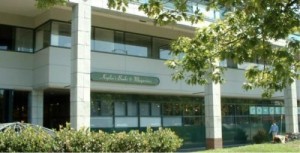Will Kepler’s go all high-tech on us?
Monday, July 30th, 2012The Bay Area loves Kepler’s Bookstore, and its patrons know how to put their money where their mouth is: Nearly 700 locals recently donated about $750,000 to keep Kepler’s afloat.
I’ve written about Kepler’s before here, and covered many of its events, too many to list. Kepler’s was founded in May 1955 by peace activist Roy Kepler. The Grateful Dead gave live shows there early in their career, and they, along with folk singer Joan Baez, often made appearances at the bookstore. (Management assumed by Clark Kepler, Roy’s son, in 1980.) It closed for two months in 2005; then the community rallied to reopen it.
Now Kepler’s is launching Kepler’s 2020, to jump-start a “next-generation community literary and cultural center.”
According to the website, “The project aims to create an innovative hybrid business model that includes a for-profit, community-owned-and-operated bookstore, and a nonprofit organization that will feature on-stage author interviews, lectures by leading intellectuals, educational workshops and other literary and cultural events.”
So far, so good. The Washington Post, in a 3-part article entitled, “How to Save an Indie Bookstore” (here and hereand here) describes the newest effort of “Kepler’s Transition Team”:
“The most ambitious part of this reorganization may be what’s happening this week. Praveen Madan [the co-owner of an indie bookstore called The Booksmith in San Francisco] has invited almost 80 people from around the country to a three-day meeting to re-imagine what a community bookstore could be. Publishers, authors, fundraisers, entrepreneurs, bookstore staff, philanthropists and even loyal customers are holed up in a large conference room at the Oshman Family JCC.”
Some parts sound good, some not-so-good. I could do without this: “Our three-day conference is filled with publishers, philanthropists, entrepreneurs and authors determined to devise a store that’s much more Internet savvy, with a staff that’s constantly blogging, tweeting and interacting with customers on Facebook. They imagine live-streaming author events, offering virtual book groups, allowing customers to interact with author holograms and providing Web surfers with real-time access to the store’s inventory and staff.”
I don’t want a bookstore to do all those things, thank you very much. I spend my days blogging, tweeting, Facebooking. While I think author Kevin Smokler has something of the right idea when he says, “We cannot look at the advent of the e-book as a problem to be solved or a trend to be minimized. Somehow, I should be able to visit Kepler’s and be an e-book consumer at the same time” – I do not want Kepler’s to be sending “recommendations” to my smartphone as soon as I walk into the store, as the WaPo article suggests.
In fact, I think that’s the single most annoying feature of Amazon. I check the publication date of a book to correct a reference, or look up an author’s previous books might be when I run across her name in a newspaper article, and based on such random data Amazon is assuming it knows my tastes and is shooting me recommendations. “‘Smart shelves’ with integrated video screens would nimbly change to reflect buyers’ interests”? My worst dreams come true!
I’d be content if Kepler’s simply continued to sponsor top-notch readings for Jane Hirshfield, Dana Gioia, and others. I’ll be happy to purchase my Le Monde or Paris Review there. But then, I’m an old-fashioned girl. I think what it really needs is a few old couches, like the old Chimera on Lytton Avenue.
Kepler’s partisans still know how to put their money where their mouth is: members of this week’s conference pledged to raise another $250,000.









